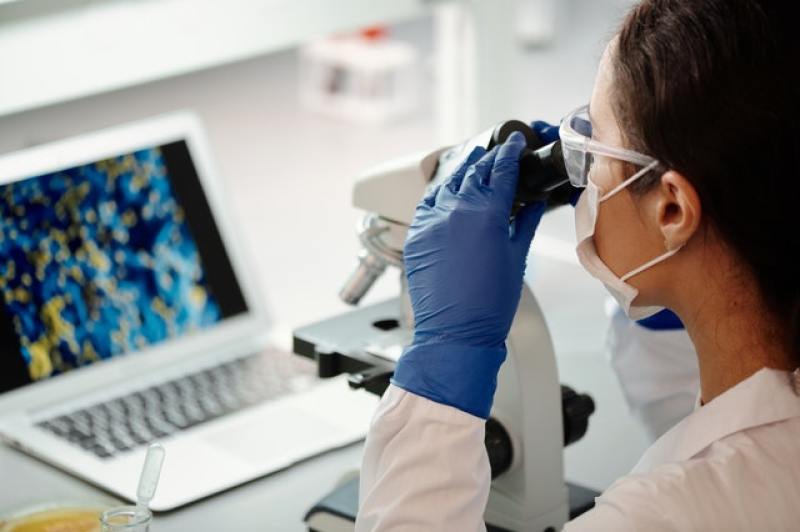
Some U.S. government personnel have reportedly been caught editing a journal associated with the Wuhan Institute of Virology (WIV).
The scientific journal Virologica Sinica, according to The National Pulse, has published hundreds of papers written by Chinese researchers employed by the Chinese People's Liberation Army.
Shi Zhengli, also known as China's "bat woman," is the journal's Editor-in-Chief and the leading bat coronavirus researcher at Wuhan's Institute of Virology.
The editorial board of the journal also includes nine other scientists from the contentious facility, which many academics and government officials believe to be the origin of COVID-19.
Researchers from the People's Liberation Army (PLA) Hospital 307, General Hospital, the Third Military Medical University, and the Fourth Military Medical University have reportedly been working with the journal for many years, even helping with the editing and review processes.
As early as May of this year, The National Pulse reported that members of Fauci's National Institute of Allergy and Infectious Diseases (NIAID) have sat on the publication's editorial board.
For instance, Jens Kuhn, the Director of Virology at the Integrated Research Facility, which the agency describes as "part of the NIAID's Division of Clinical Research (DCR) within NIH," is listed as a member of the journal's editorial board.
According to his professional profile, he "specializes in highly virulent viral human and animal pathogens" as one of the NIAID-funded venture's "two Principal Scientists."
Additionally, the journal regularly publishes "gain-of-function" research papers, confirming allegations that Dr. Anthony Fauci misled the public about the extent to which his NIH agency was involved in the high-risk Wuhan Institute of Virology project.
Fauci has reportedly faced criticism for funneling $US598,500 to the Wuhan Institute of Virology from a US$13 million grant to EcoHealth Alliance, a not-for-profit organization. During a heated discussion with Senator Rand Paul, Fauci insisted that his organization had never been involved in gain-of-function research at the Chinese facility.
But as worded in a 2017 journal article, researchers "carried out a gain-of-function complementary DNA (cDNA) screen for host proteins that allow the minimally susceptible cell line 293T to be infectable by DENV (Carnec et al., 2015)."
That research article goes on to describe that in order to complete the experiment, they also conducted "gain-of-function and loss-of-function assays were performed."
"... two main approaches can be undertaken in such screens: gain-of-function, in which a library of overexpressed proteins is used in order to induce or amplify restriction," it said.
Sina Bavari, the former chief scientific officer of USAMRIID, is also reportedly on the editorial board of Virologica Sinica, and has attended a board meeting at the Wuhan Institute of Virology. There have also been numerous conferences that included experts from both Fauci's NIAID and the Wuhan Institute of Virology.
But Bavari claimed that there was no link between USAMRIID and the Wuhan Institute of Virology in Wuhan, China.
"Being on an editorial board of a journal is not the same as helping a Chinese institute of this and that to do something. They're just two different things," he was reported as saying in The Australian.
Similarly, outgoing NIH Director Francis Collins has many suspicious entanglements that the mainstream media is choosing to ignore to laud his lengthy career at the organization.
See "6 Scandals the Media Won't Tell You About Outgoing NIH Director Francis Collins" by The National Pulse for additional information.
Last month, The Intercept revealed that they had acquired over 900 pages of papers documenting EcoHealth Alliance's use of government funds to support bat coronavirus research in China. The cache of papers includes two previously released funding applications from the National Institute of Allergy and Infectious Diseases, as well as project updates from EcoHealth Alliance, whose research has been examined in light of the pandemic's roots.
The papers were made public as part of The Intercept's ongoing Freedom of Information Act lawsuit against the National Institutes of Health.
Under the grant "Understanding the Risk of Bat Coronavirus Emergence," EcoHealth Alliance President Peter Daszak plans to test thousands of bat samples for new coronaviruses. People who deal with animals were also subjected to the screening process as part of the study.
EcoHealth Alliance received a total of $3.1 million from the bat coronavirus award, including $599,000 that was utilized in part by the Wuhan Institute of Virology to discover and modify bat coronaviruses that may infect people.
Initially, the funding was given for five years - from 2014 to 2019. Funding was extended in 2019 but stopped in April 2020 by the Trump administration.
SARS-CoV-2, the virus that causes COVID-19, is most closely related to a virus found in bats, making bats an important target for research into the outbreak's origins.
The second project, "Understanding Risk of Zoonotic Virus Emergence in Emerging Infectious Disease Hotspots in Southeast Asia," was granted in August 2020 and will run until 2025. The plan, published in 2019, sometimes seems predictive, concentrating on the scaling up and deployment of resources in Asia in the event of an "emergent infectious disease" outbreak and referring to Asia as the "hottest of the EID hotspots."





























